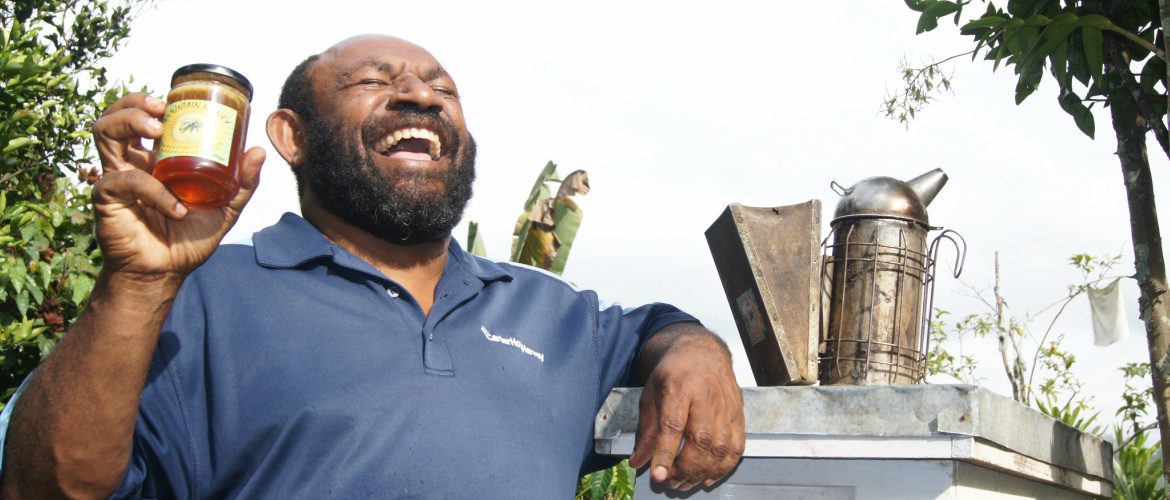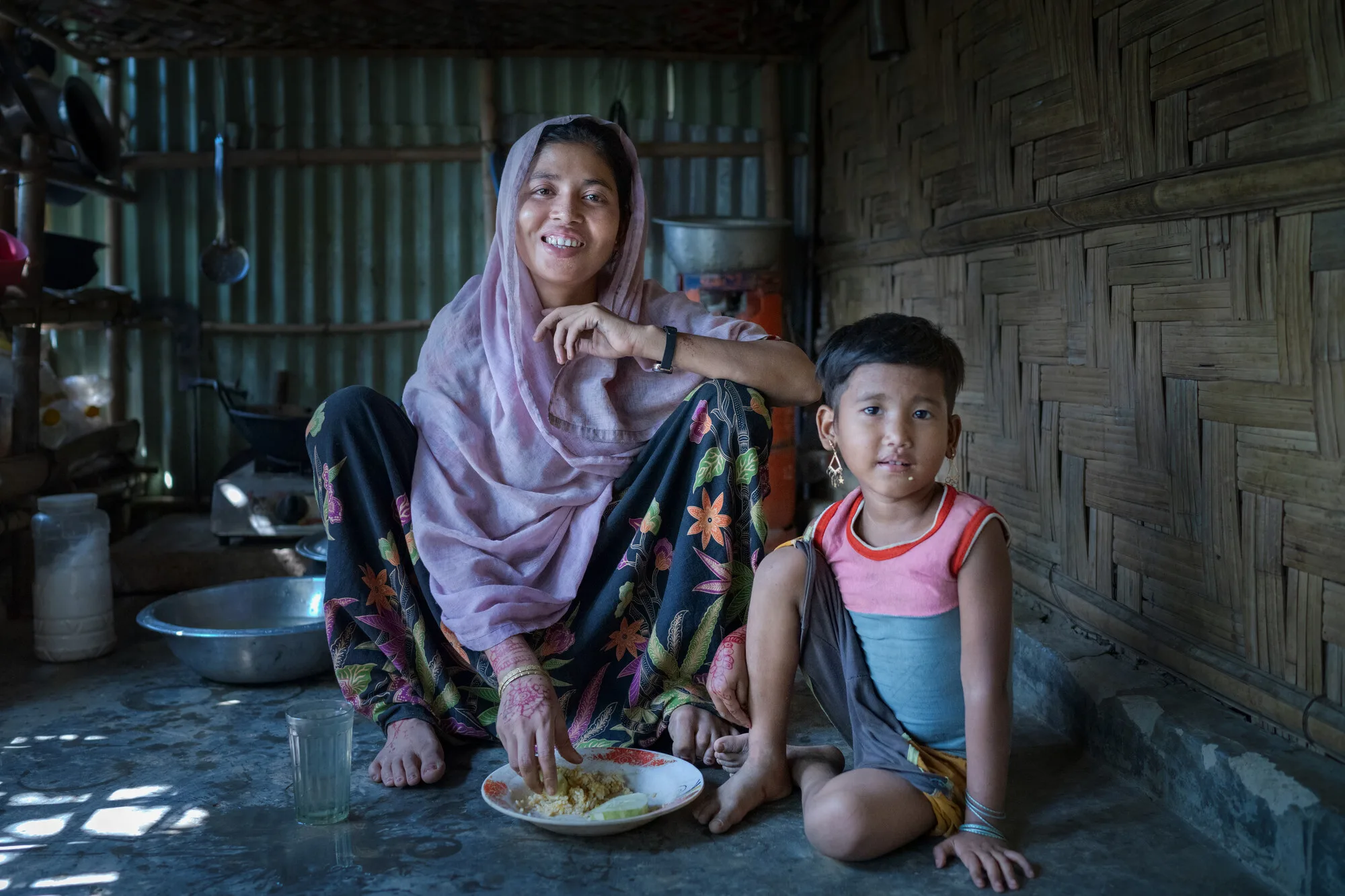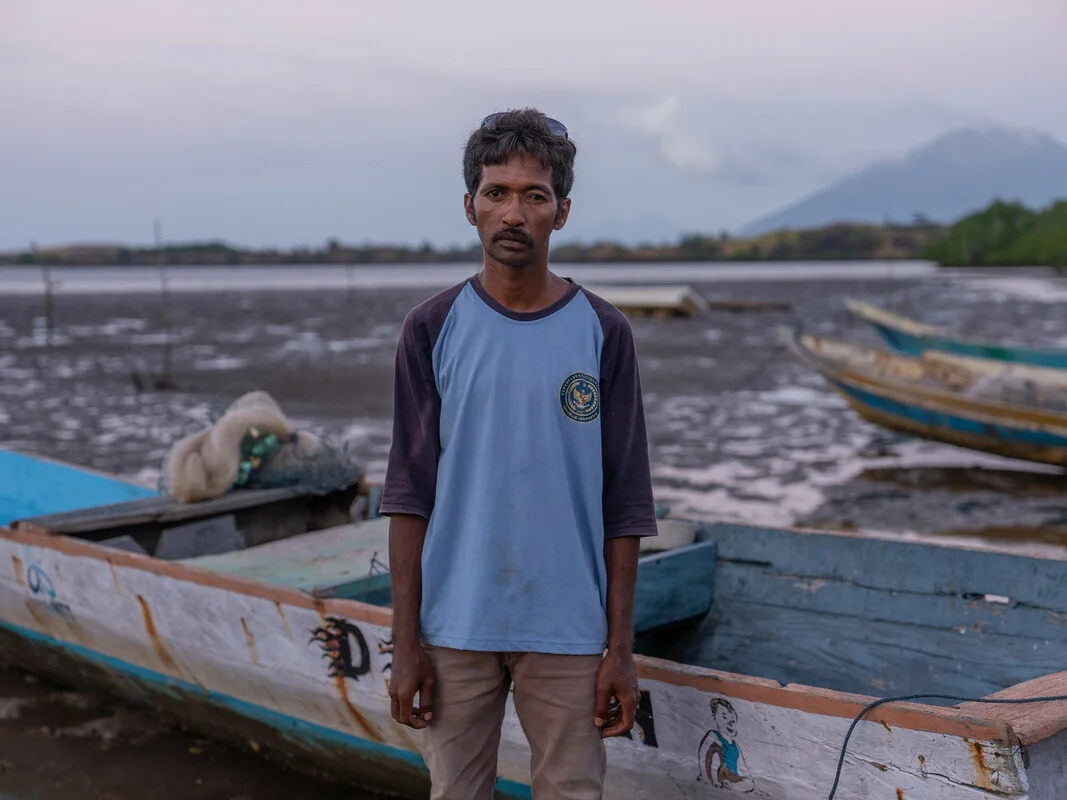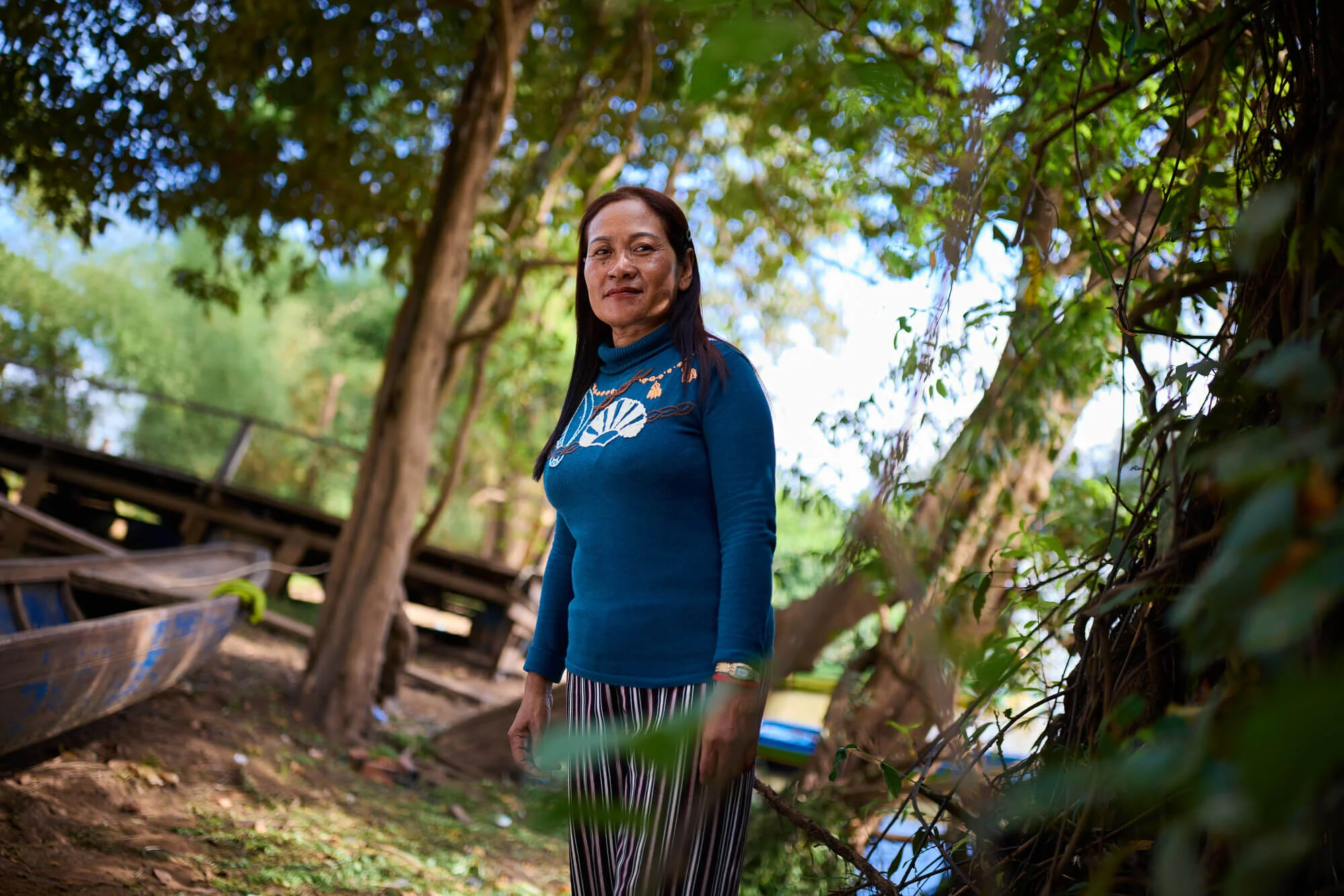In the highlands of Papua New Guinea, families are being trained as beekeepers and the rewards are sweet as, well…honey!
Several years ago Kelly Inae (pictured above) came up with the idea of “Mountain Honey”, a honey making business to help farmers in rural areas by training them as beekeepers. Yet, despite his best intentions, he soon realised it wasn’t possible to do it all for free. Now, thanks to your support, Mountain Honey is a sustainable business that can help even more people make a living.
“Oxfam has helped me see how to make a successful, sustainable business while we continue to help more farmers in the rural areas.”
Sustainable farming and business
Kelly calls the bees the “angels of agriculture”. He explains that they are “essential for farming. They do an excellent job of pollinating a lot of plants,” which boosts overall crop production. And beekeeping is good for household incomes: “It is good money for a beekeeper, as the price for honey is much higher than for other commodities.”
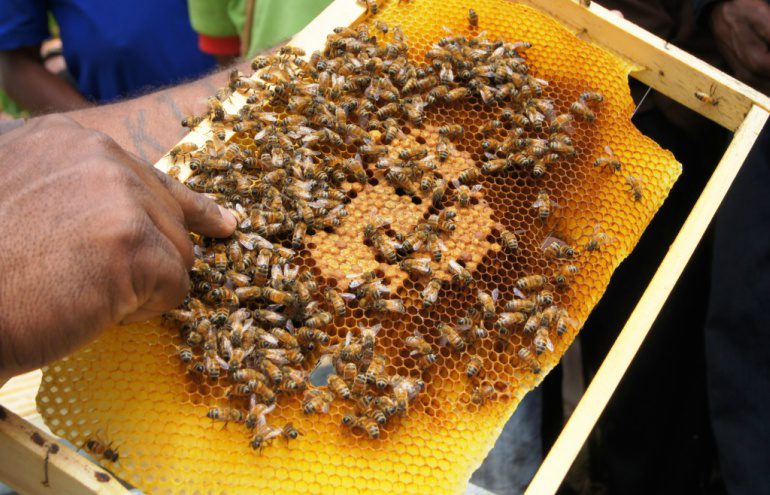
The Mountain Honey Philosophy
Mountain Honey’s philosophy is based around providing beekeeping training to both the wife and husband in each family. “We call it a family unit project,” Kelly says. “It will help the family because the wife will know how to work on the beehives as well. Otherwise it might just be the men’s thing, and maybe the money would just go out from one side. So we help the women in the part of the extension and training.”
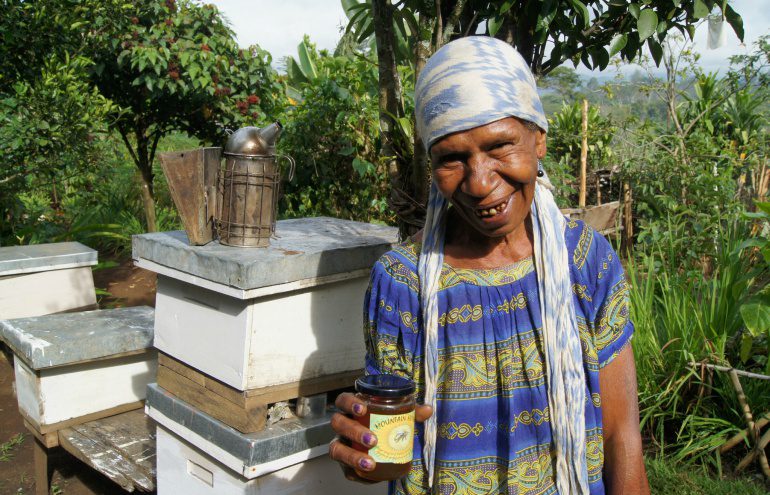
Training Rural Farmers in Beekeeping
“We help beekeepers look after the bees, breed the queen, look after the bee box,” Kelly says. “They produce their honey and then they sell it to us.”
The profits earned from the honey allows families to pay their children’s school fees, build new houses and invest in their own small businesses.
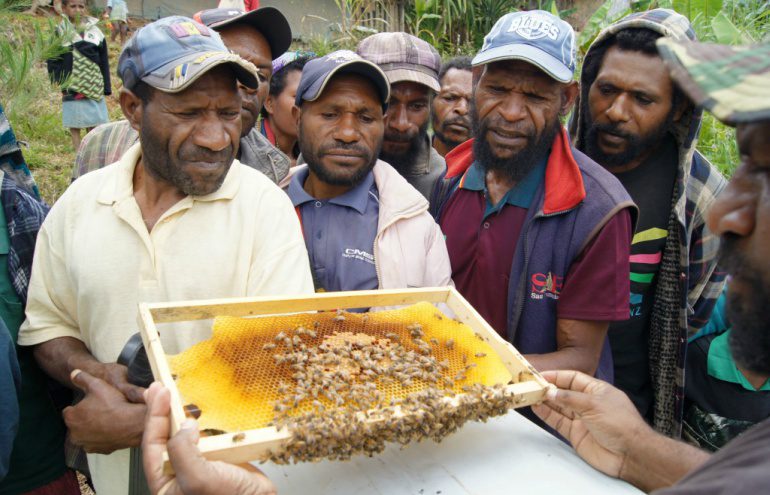
Reducing the Costs of Business
“There are three tools that a beekeeper needs. Besides a bee box, they need a veil, a hiving tool and smoker. These are a beekeepers’ best friend. If you go in without these, you will get a lot of bee stings.”
“We decided to reduce the cost of beekeeping equipment by manufacturing them ourselves. By doing this we can halve the equipment cost for rural beekeepers.” Kelly then supplies the equipment to farmers on a loan basis. “They can pay back when they sell us their honey. They will increase their beehives and incomes, and we can sell this honey throughout the country.”
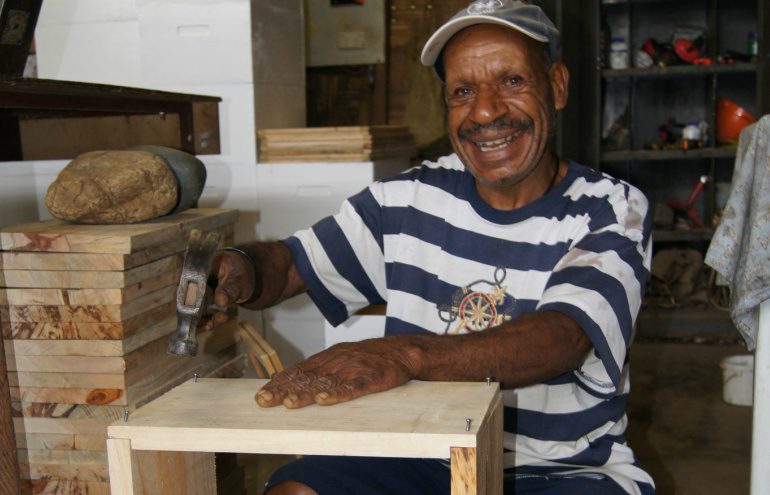
“In the past, we had a soft heart so we were helping, but we never saw a breakthrough. This time, with Oxfam, I am confident we will have a good business but also help people.”
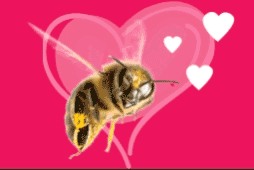
Oxfam Unwrapped
Thanks to people like you, Oxfam Unwrapped is helping to transform the lives of people living in poverty. Ask a special someone to “Bee your Valentine” and you’ll be helping beekeepers in PNG.
